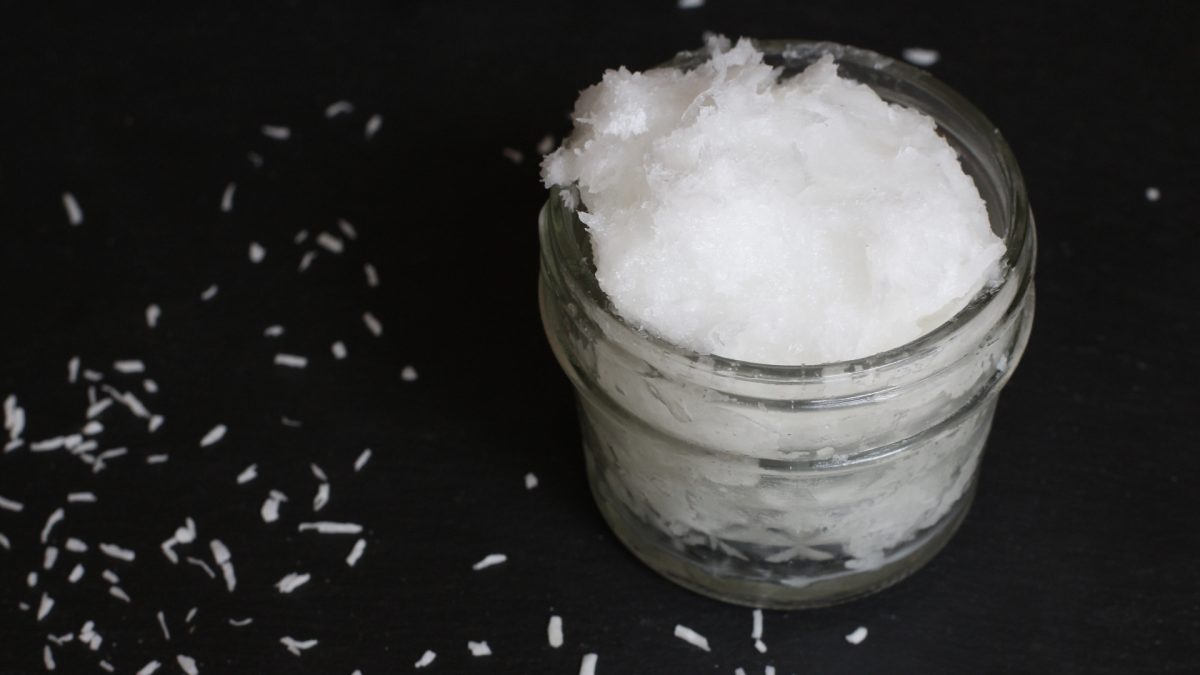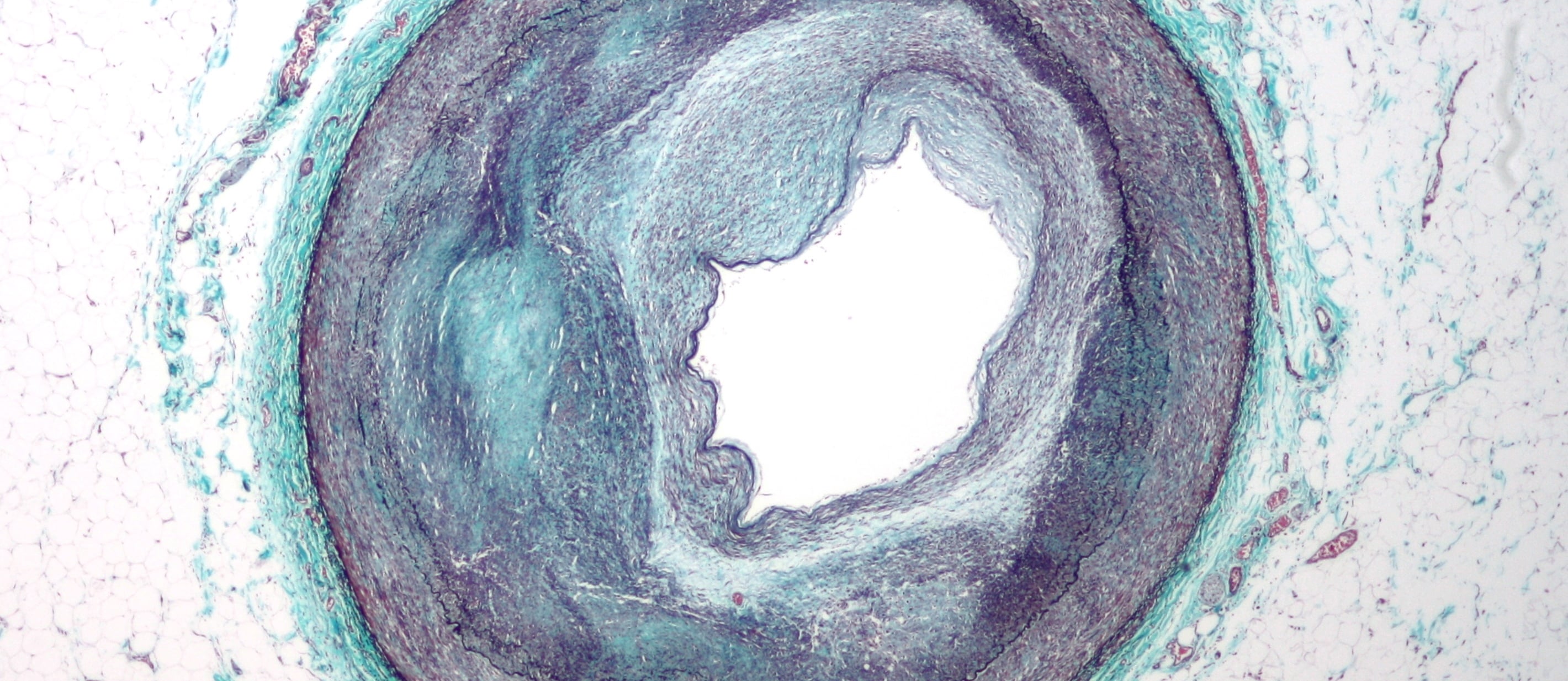
Saturated Fat
According to William C. Roberts, the editor in chief of the American Journal of Cardiology, the only critical risk factor for atherosclerotic plaque buildup is cholesterol, specifically elevated LDL cholesterol in your blood. To drastically reduce LDL cholesterol levels, we need to drastically reduce our intake of three things: trans fat, which comes from processed foods and naturally from meat and dairy; saturated fat, found mainly in dairy and other animal products and junk foods; and dietary cholesterol, found exclusively in animal-derived foods, especially eggs.
Diets high in saturated fat don’t only increase our risk of heart disease. A study of three hundred Alzheimer’s patients, for instance, found that treating vascular risk factors, such as high cholesterol and blood pressure, may even slow the progression of the disease but not stop it. That’s why prevention is the key. Cholesterol doesn’t just help generate atherosclerotic plaques within our brain arteries; it may help seed the amyloid plaques that riddle the brain tissue of Alzheimer’s victims. Cholesterol is a vital component of our cells, which is why our body makes all that we need. Consuming excess cholesterol, and especially trans and saturated fats, can raise our blood cholesterol level. Too much cholesterol in your blood is not only considered the primary risk factor for heart disease but is also unanimously recognized as a risk factor for Alzheimer’s disease.
The toxicity of saturated fats can be demonstrated directly. If we expose beta cells to saturated fat or to LDL (“bad”) cholesterol in a petri dish, the beta cells begin to die. The same effect is not observed with the monounsaturated fats concentrated in fatty plant foods, such as nuts. When you eat saturated fat, both insulin action and insulin secretion are impaired within hours. The more saturated fat you have in your blood, the higher your risk may be for developing type 2 diabetes.
For substantiation of any statements of fact from the peer-reviewed medical literature, please see the associated videos below.
Image Credit: Pixabay. This image has been modified.
Popular Videos for Saturated Fat


What About Coconuts, Coconut Milk, and Coconut Oil MCTs?
Do the medium-chain triglycerides in coconut oil and the fiber in flaked coconut counteract the...
What Causes Insulin Resistance?
Prediabetes and type 2 diabetes are caused by a drop in insulin sensitivity blamed on...
Alzheimer’s Disease, Copper, and Saturated Fat
If copper is associated with Alzheimer’s disease, what about healthy, whole plant food sources such...
What Explains the French Paradox?
Why do heart attack rates appear lower than expected in France, given their saturated fat...
What Causes Diabetes?
Saturated fat can be toxic to the insulin-producing beta cells in the pancreas, explaining why...
Lipotoxicity: How Saturated Fat Raises Blood Sugar
The reason those eating plant-based diets have less fat buildup in their muscle cells and...
The Saturated Fat Studies: Set Up to Fail
How might Big Butter design a study (like the Siri-Tarino and Chowdhury meta-analyses) to undermine...
The Saturated Fat Studies: Buttering Up the Public
Dairy industry campaign to “neutralize the negative image of milkfat among regulators and health professionals...
Heart Disease Starts in Childhood
By age 10, nearly all kids have fatty streaks in their arteries. This is the...
Foods to Help Protect Your Arteries from Saturated Fat
If you’re going to have something unhealthy, is there anything you can eat with it...
Is Butter Really Back? What the Science Says
Is butter—and other saturated fats—bad for you or not?All Videos for Saturated Fat
-

Are Fish or Fish Oil Supplements Good for the Heart?
Five massive new trials have been published recently, randomizing tens of thousands to various formulations of fish oil versus placebo.
-

The TAME Trial: Targeting Aging with Metformin
If you have diabetes, metformin can make things better, but if you don’t, the drug may make things worse.
-

Does Resveratrol Make You Live Longer?
Is the red wine molecule resveratrol responsible for the “French paradox”?
-

Why Do Milk Drinkers Live Shorter Lives on Average?
How might we reduce the risk of premature death from dairy consumption?
-

How to Boost Your Endothelial Progenitor Cells (EPCs) for Heart Health
How can we improve the capacity of our blood vessels to repair themselves?
-

The Diet Shown to Slow Age-Related Hearing Loss
An interventional trial found that dietary changes may slow or even reverse the loss of hearing.
-

How to Get a Good Night’s Sleep Without Sleeping Pills
Taking less than just 18 Ambien-class sleeping pills in an entire year may triple the risk of dying prematurely.
-

Is Soy Milk the Most Nutritious Non-Dairy Milk?
Soy milk is compared to dairy milk and other plant-based milks.
-

Greens, Green Tea, and Nuts Put to the Test for Telomeres
Not all plant foods are linked to less cellular aging based on telomere attrition, and not all animal foods are linked to more.
-

Are Beyond Meat Plant-Based Meat Alternatives Healthy?
The SWAP-MEAT study puts Beyond Meat products to the test.
-

Fecal Transplants for Aging and Weight Loss
Does poop from centenarians have anti-aging properties?
-

A Case of Stage 3 Cancer Reversal with Fasting
I go over a case report of water-only fasting, followed by a whole food, plant-based diet for follicular lymphoma.
-

Soul Food That’s Good for the Soul
The best of soul food’s origins are tied to the plant-centric West African diet.
-

The Role of Endotoxins in Alzheimer’s and Dementia
Why can a single meal high in saturated fat impair cognition?
-

The Best Diet for Fibromyalgia and Other Chronic Pain Relief
Anti-inflammatory diets can be effective in alleviating chronic pain syndromes.
-

Answering Your Questions About Cholesterol and Diabetes
I answer some common questions I’ve been asked about cholesterol and diabetes, such as “What is the ideal LDL?” “What’s going on when someone eats healthfully but their glucose is still out of control?”
-

Cholesterol and Heart Disease: Why Has There Been So Much Controversy?
Is the role of cholesterol in heart disease settled beyond a reasonable doubt?
-

Advanced Glycation End Products (AGEs) and Cognitive Decline
AGEs may be one explanation for why those who consume meat may have up to three times the risk of developing dementia compared with vegetarians.
-

How to Avoid the Boomerang Effect of Remedy Messaging
How can mandating healthy eating messaging on fast-food ads ironically make things worse?
-

Using the Cigarette Tax Playbook Against Big Food
How might we replicate one of our great public health victories—the reduction of smoking rates—in the field of nutrition?
-

The Best Diet for Healthy Aging
Swapping just 1 percent of plant protein in place of animal protein was associated with significantly less age-related deficit accumulation.
-

The Best Diet for Treating Atrial Fibrillation
What foods should we eat and avoid to reduce our risk of Afib?
-

Coffee Put to the Test for Treating Parkinson’s Disease
Coffee can improve Parkinson’s symptoms within three weeks compared to placebo, but do the benefits last?
-

Are the Health Benefits of Nuts Limited to Those Eating Bad Diets?
Do nut eaters live longer simply because they swap in protein from plants in place of animal protein?
-

Animal Protein vs. Plant-Based Protein
I discuss a public health case for modernizing the definition of protein quality.
-

Foods to Help Protect Your Arteries from Saturated Fat
If you’re going to have something unhealthy, is there anything you can eat with it to help mediate the damage it may cause?
-

Exercising to Protect Your Arteries from Fast Food
There is a window of time in which sufficient physical activity can help mediate some of the damage caused by eating an unhealthy meal.
-

Saturated Fat Causes Artery and Lung Inflammation
What happens within hours of eating a high-fat meal?
-

Do Potatoes Increase the Risk of High Blood Pressure and Death?
Do potato eaters live longer or shorter lives than non-potato eaters?
-

Do Potatoes Increase the Risk of Diabetes?
Does the link between white potatoes and diabetes extend to non-fried potatoes without butter or sour cream?
-

Avoid These Foods to Prevent a Leaky Gut
Avoid these foods for leaky gut prevention: common drugs, foods, and beverages can disrupt the integrity of our intestinal barrier.
-

Can Cholesterol Get Too Low?
Why might healthy lifestyle choices wipe out 90 percent of our risk for having a heart attack, whereas drugs may only reduce risk by 20 to 30 percent?
-

3-MCPD in Refined Cooking Oils
There is another reason to avoid palm oil and question the authenticity of extra-virgin olive oil.
-

How to Boost Brain BDNF Levels for Depression Treatment
Fasting and exercise can raise BDNF levels in our brain, but this can also be achieved by eating and avoiding certain foods.
-

The Food That Can Downregulate a Metastatic Cancer Gene
Women with breast cancer should include the “liberal culinary use of cruciferous vegetables.”
-

How to Help Control Cancer Metastasis with Diet
Randomized controlled trials show lowering saturated fat intake can lead to improved breast cancer survival.
-

What Causes Cancer to Metastasize?
Palmitic acid, a saturated fat concentrated in meat and dairy, can boost the metastatic potential of cancer cells through the fat receptor CD36.
-

The Best Diet for Fatty Liver Disease Treatment
What are the three sources of the liver fat in fatty liver disease and how do you get rid of it?
-

Is Heme Iron the Reason Meat Is Carcinogenic?
Rectal biopsies taken before and after eating meat determine the potentially DNA-damaging dose of heme.
-

Plant-Based Protein: Are Pea and Soy Protein Isolates Harmful?
What are the different impacts of plant protein versus animal protein, and do the benefits of plant proteins translate to plant protein isolates?
